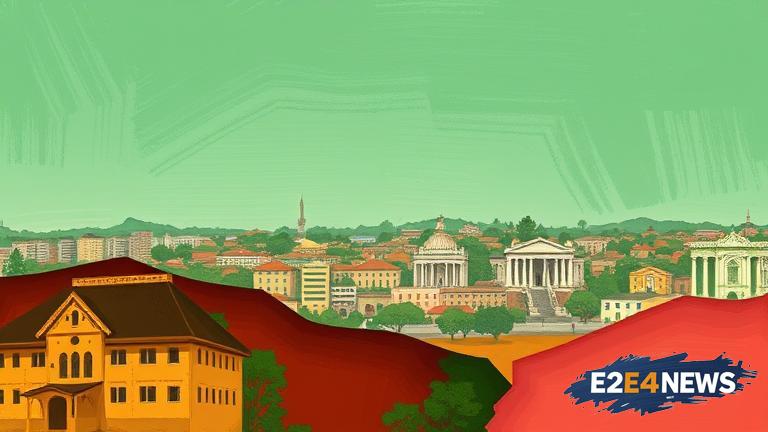Nigeria, a country located in West Africa, has been facing numerous socio-political challenges in recent years. The country has a diverse population of over 200 million people, with more than 250 ethnic groups. This diversity has often led to conflicts and tensions between different groups. One of the major issues facing Nigeria is corruption, which has been a persistent problem for decades. The country has been ranked as one of the most corrupt countries in the world, with many government officials and business leaders involved in corrupt practices. Another significant challenge is the issue of insecurity, with the Boko Haram insurgency and banditry being major concerns. The country has also been experiencing economic difficulties, with a significant decline in the value of the naira and high levels of unemployment. Despite these challenges, Nigeria has made significant progress in recent years, with improvements in areas such as healthcare and education. The country has also been investing heavily in infrastructure development, with major projects such as the construction of new roads and railways. However, more needs to be done to address the underlying issues that are hindering the country’s progress. The government has been implementing various policies and programs aimed at reducing poverty and inequality, but the impact of these initiatives has been limited. The country’s political landscape is also complex, with many different parties and interest groups vying for power. The 2023 presidential election is expected to be highly contested, with many candidates already declaring their interest. The election is likely to be a major test for the country’s democratic institutions, and it will be important for the government to ensure that the process is free and fair. In addition to these domestic challenges, Nigeria is also facing significant regional and global challenges, including the impact of climate change and the COVID-19 pandemic. The country has been working to strengthen its relationships with other countries in the region, including through its membership in the Economic Community of West African States (ECOWAS). Overall, Nigeria’s socio-political landscape is complex and multifaceted, and it will require a sustained effort from the government and other stakeholders to address the many challenges that the country is facing. The international community also has a role to play in supporting Nigeria’s development, through initiatives such as foreign investment and aid programs. By working together, it is possible to build a brighter future for Nigeria and its people.
